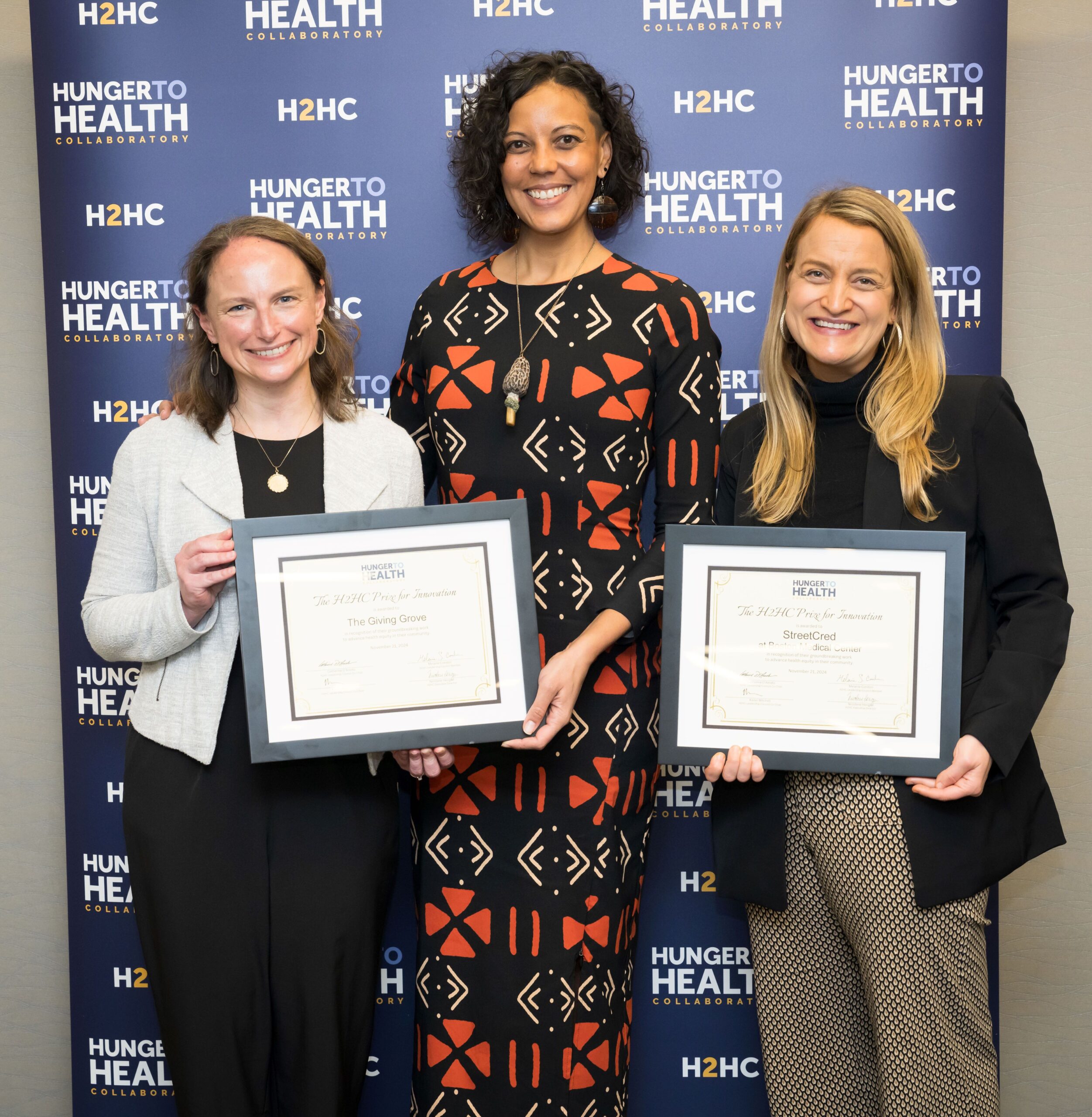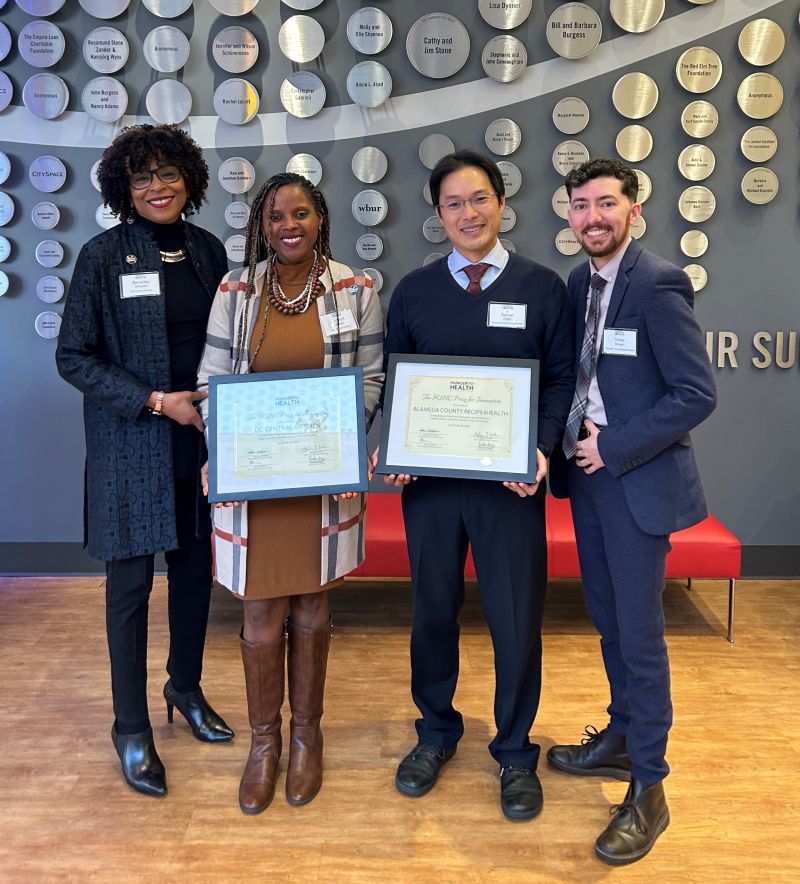About the H2HC Prizes for Innovation
The Hunger to Health Collaboratory launched its national Prizes for Innovation in 2023 and has awarded $400,000 since the program’s launch.
The H2HC Prizes for Innovation identify and highlight innovative food and nutrition work that offers promising, upstream models and replicable, scalable solutions that significantly advance health equity in communities throughout the U.S.
The H2HC 2025 Prizes for Innovation
This year, the Hunger to Health Collaboratory (H2HC) will award two $100,000 prizes to organizations advancing health equity for youth through food and nutrition policy change. In collaboration with Newman’s Own Foundation, we will also award four new $25,000 prizes to organizations working in nutrition education and school food and Indigenous food justice for youth.
All of these prizes are focused on systemic food and nutrition work that advances health equity for youth (up to and including age 17) in the U.S.
Why are we focusing on youth health equity this year?
There are too many young people in the U.S. facing profound food and nutrition challenges that impact every aspect of their lives.
- Nearly 1 in 5 children in the U.S. live in food-insecure households
- More than 1 in 4 American Indian and Alaska Native households with children are food insecure
- 48% of Native American households reported living >10 miles from the nearest grocery store
Past Prize Winners

The 2024 Prizes for Innovation were awarded to StreetCred at Boston Medical Center and The Giving Grove.
- StreetCred, based at Boston Medical Center (BMC), helps families build nutrition security through enhanced economic stability. StreetCred provides families with financial coaching, helps them access asset-building services like SNAP and WIC, and provides free assistance with tax preparation and paid family leave applications. StreetCred founded the national Health by Wealth Collective to support health systems to integrate similar services into medical settings. The Collective has grown to 36 member organizations across 13 states and since 2016 has returned more than $16.8 million to 7,700 families.
- The Giving Grove is a national network that supports community-based partners in planting and caring for fruit trees, nut trees, and berry brambles. Their work improves urban environments, increases the tree canopy, and provides sustainable sources of free, organically grown food in neighborhoods facing food insecurity. Their network of 650 orchards is growing more than 4 million servings of free, fresh food annually and re-invigorating urban green spaces. The Giving Grove is developing a 20-city network that will impact 15% of all food-insecure Americans and create sustainable, local food systems.

The Inaugural H2HC Prizes for Innovation were awarded to Alameda County Recipe4Health and DC Central Kitchen. Learn more about the winning organizations below and watch the prize ceremony here.
- Alameda County Recipe4Health is a nationally recognized, award-winning model that integrates food-based interventions into healthcare settings (Food as Medicine) to treat, prevent. and reverse chronic conditions; to address food and nutrition insecurity and other social determinants of health; and to improve health and racial equity. By sourcing the food from BIPOC organic and regenerative farmers, Recipe4Health leverages healthcare and agriculture to generate multipliers for human health, economic health, climate health, and equity.
- DC Central Kitchen is an iconic nonprofit and social enterprise that combats hunger and poverty through job training and job creation. The organization provides hands-on culinary job training for individuals facing high barriers to employment while creating living wage jobs and bringing nutritious, dignified food where it is needed most – including public schools, neighborhood corner stores, and food-insecure communities throughout the city.
